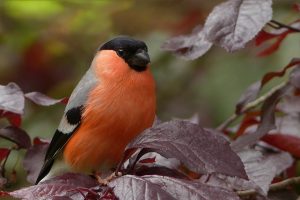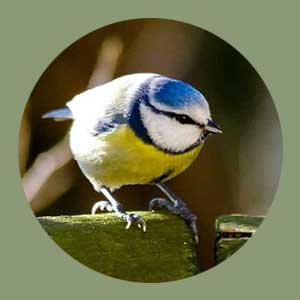Not only is it interesting to know which birds are protected in the UK, but it might prove useful if you are undertaking any large scale tree, bush, or hedge cutting.
It is advisable to do such jobs outside of breeding season when there is less likelihood of finding inhabited nests.

In England, Scotland, and Wales, all wild birds, their eggs, and nests are protected by The Wildlife and Countryside Act 1981, during the breeding season. In Northern Ireland, the legislation is The Wildlife (N.I.) Order, 1985.
As strange as it may seem, shooting and trapping wild birds isn’t always against the law. There are exceptions to the rule; however, Natural England must grant a licence before any such work begins.
Table of Contents
Why are wild birds protected?
Many activities cause birds harm; both intentionally and accidentally. Laws are put in place to protect wild birds ensuring their number remains stable and that they don’t go missing from regions where they once thrived.
Just some of the activities that harm wildlife include;
- Trimming of and cutting back large areas of vegetation, trees, and hedgerows.
- Demolition work due to renovation or construction
- Noise, vibration, or lighting disturbance
- Hunting, egg poaching, and removing active nests
What are UK birds protected from
The Act gives all birds, excluding game birds, a basic level of protection. It includes migrant birds that make the UK their winter home.
It is an offence, punishable by fine or imprisonment, to
- intentionally kill, injure, or take a wild bird
- intentionally take, damage, or destroy a nest during construction or use
- intentionally take or destroy the eggs of a wild bird
- have control of a bird, dead or alive, or any part thereof
- have possession of an egg
- use any form of a trap to harm, injure, or steal any bird
Are all birds equally protected?
All birds have some protection, particularly during the breeding season, but some have more protection than others. These birds have a separate category known as Schedule 1. Most of the members of this group are birds of prey, such as the barn owl. They are scavengers and predators and are vital to the well-being of the environment.
In the UK, there are 15 birds of prey, and 10 of those are, worryingly, on the amber or red list conservation. Extra protection is necessary to ensure their populations stabilize, enabling them to continue being a vital resource in ecological studies.
Their numbers are dwindling, often due to their habitats deteriorating or being permanently lost. Another cause for the decline is pesticides and poisons used in agricultural practices. Additional laws passed prevent bird populations from further declining at the hands of man.
It is an offence to, accidentally or intentionally, disturb Schedule 1 birds:
- As they nest, build a nest, or are in the vicinity of a nest that houses their young.
- To disturb their dependant young.
The crime carries a hefty sentence – each offence has an unlimited fine, and/or 6months in prison.
Finally
The British Trust for Ornithology, BTO has a comprehensive listing of every bird and their protection level, including the parts of the UK where they receive increased protection.
Nesting season is officially from February to August, and it is during these times that we advise against major garden works. Any horticultural or building works that might harm or disturb birds, nests, eggs, or dependant young, even if accidental, could land you in hot water.
Always be aware of our feathered friends and their habitat, as all birds are protected in the UK. Let’s do our part to prevent their numbers from dwindling any further.
